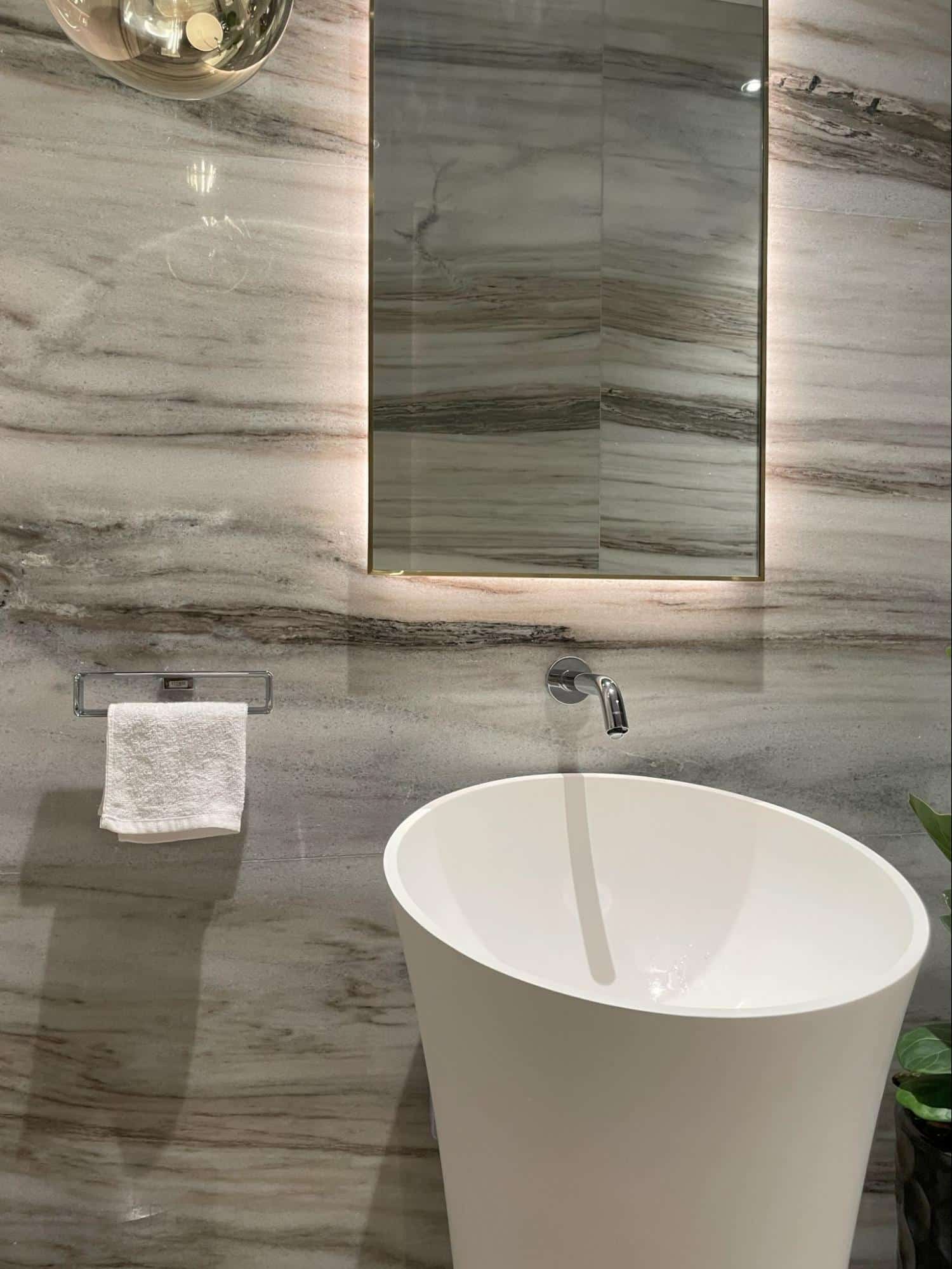Functionality and cleanliness are requirements regardless of where you are. This is why it’s necessary to install a standard tap, or ‘faucet’, as it allows you and your visitors to do various kitchen or bathroom tasks and, most importantly, wash their hands.
When installing these facilities, the main focus is whether to use manually operated or automated taps. Due to their simplicity and the small number of parts that function, traditional taps are typically less expensive and more reliable than sensor taps, which need a power source, sensor, and a solenoid-operated valve.
However, there may be other factors that one should consider in addition to the cost. So let’s take a look at the difference between a sensor and a traditional tap.
What Are Sensor Taps?

With sensor taps, the user is not required to manually turn on and off the tap because the water flow is triggered by the presence of hands in the wash basin. Removing your hands from the wash basin cuts off the water flow when using a sensor tap.
Advantages Of Sensor Taps
Maintaining hygiene, which is crucial following a pandemic, has increased the demand for contactless technologies and utilities. People are switching to sensor taps because of how crucial this is in public and private toilets.
Sensor taps are the ideal illustration of how technology has improved the safety and hygiene of our everyday activities. While you can strive to periodically sanitise the bathrooms, sensor technology and automatic faucets can lessen the time and labour-intensiveness of manual deep cleaning and the intervals between each one.
Here are some of the advantages of sensor taps.
Accessibility
The accessibility of sensor taps to all users is a benefit that is seldom highlighted. This is especially important when considering people with agility and mobility issues. Users with mobility issues gain from not having to stretch for and manually control the taps.
Most people underestimate their physical abilities to carry out seemingly easy tasks like washing their hands, but sensor taps make these much easier for a significant portion of the community.
Better Hygiene
To operate a conventional tap, users must touch the handle or tap. Since people typically do this with dirty hands, they touch the same germs right away after washing them. When the handle is touched or used, more germs are introduced to the surface.
Sensors are incorporated into the handle of automatic faucets to detect motion. As a result, it instantaneously regulates the flow of water when an item, such as a hand, appears in front of it.
By doing this, there is no need to come into contact with the handle at all, and repeated cross-contamination is avoided between uses. When sensor taps are regularly maintained, the levels of hygiene are significantly better.
Disadvantages Of Sensor Taps
While there are various advantages of sensor taps, there are also some disadvantages that you need to consider before making a decision. Some of the disadvantages include the following.
Reliance On Energy
Sensor taps need a power source to function, such as batteries or a power source. This reliance on electricity may be a drawback in locations with unstable power supplies or during blackouts.
Additionally, the continuous replacement of batteries is another expense associated with battery-powered sensor tap maintenance.
However, the TOTO sensor tap is self-powered, meaning it does not require batteries or an electrical outlet to function. Instead, they use the water flow’s kinetic energy to power the sensor and turn on the tap.
Cost
Standard faucets or self-closing taps are typically less expensive than sensor taps. Due to the requirement for electrical connections and sensor calibration, installation expenses may also be higher.
What Are Traditional Taps?

A common choice for residential taps is a traditional tap. The water flow is initiated by twisting a lever or a knob on the front of the fixture, which is how they are controlled. Traditional taps are turned on and off by pulling and releasing the handle, and water flows when the handle or knob is turned. These types of taps can be fitted in your bathroom or kitchen.
Advantages Of Traditional Taps
Traditional taps, usually called manual faucets, have endured as dependable and practical fixtures in residences and commercial buildings worldwide. Although newer options like sensor taps have been made available by technology, the traditional tap still provides several advantages that make it a popular choice for many individuals.
Long-Term Durability
Traditional taps have been recognised for their reliability and durability. Since they have fewer moving parts and a straightforward design, they are less likely to experience technical difficulties over time, providing steady water flow.
Ease Of Maintenance
Traditional taps require fewer parts and don’t have any electronic components, making them relatively easy to upkeep and repair. It is frequently easy to replace the troubling aspect if an element starts to wear out or leak.
Disadvantages Of Traditional Taps
Traditional taps have their own set of drawbacks despite being frequently used and praised for their simplicity. Understanding the potential disadvantages of keeping with conventional manual taps is essential, as modern technology tends to change how we connect with our surroundings.
Accessibility
Individuals with poor hand dexterity, arthritis, or other physical disabilities may find it challenging to use traditional taps. It could be painful or difficult for them to turn handles or levers.
Poor Hygiene
Traditional taps necessitate physical contact to function, which causes worries regarding cleanliness, especially in public areas. Having multiple people touching the faucet increases the chances of spreading germs and bacteria.
The Perfect Tap Is One That Does Not Make Washing Your Hands A Challenge
The decision between sensor taps and traditional taps eventually boils down to your individual needs, budget, and the amount of convenience and hygiene you want to attain.
At FullSun, Singapore’s TOTO supplier, you can get advice and your questions answered by professional consultants who will recommend the perfect washlet and toilet bowl in Singapore for your bathroom. Drop by our showroom to browse through all the different ranges of TOTO products, or contact us at 62950966 for more information.


One thought on “Sensor Tap vs Traditional Tap: Differences and Which To Choose”
Comments are closed.